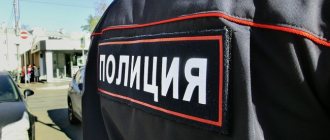Currently, the State Duma is considering draft law No. 434998-7, proposing amendments to the Code of Criminal Procedure of the Russian Federation regarding the procedure for questioning witnesses. Article 189.1 may appear in the Criminal Procedure Code of the Russian Federation, the main provisions of which are as follows:
- A witness in a criminal case can be questioned by the investigator via video conferencing. This option is acceptable if the witness cannot appear in person at the investigative department.
- The basis for such an interrogation is a resolution of the investigator sent to the investigative authorities or inquiry authorities at the location of the witness.
- Investigative bodies or bodies of inquiry that have received a decision carry out interrogation through video conferencing.
- The video interrogation itself is carried out according to all the rules enshrined in Art. 189 Code of Criminal Procedure of the Russian Federation. Before starting the procedure, the inquiry officer or investigator at the location of the witness must carry out identification of the person.
- The interrogation protocol, as well as the documentation provided by the witness being interrogated, the lawyer's order (if the witness used his help) are sent to the investigator conducting the investigation in the criminal case. The interrogation protocol is signed by the investigator leading the case.
Video interrogation: what will it give?
Changing the rules for questioning witnesses has several goals:
- Interrogation using videoconferencing will reduce the time required for criminal investigations, since investigators, tasked with obtaining the necessary information from important witnesses living in separate regions, will not have to personally go to such subjects. As you know, business trips have a negative impact on the timing of the investigation of all other criminal cases being processed by the investigator.
- Remote interrogation reduces the financial costs of investigative actions. This provision is clear: the state will not have to pay for the investigator’s trip.
- Interrogation via videoconferencing will allow you to obtain information from witnesses who, for objective reasons, cannot appear before investigators (natural disaster, need to care for a sick relative, hospitalization, etc.).
- Remote interrogation will ensure the safety of witnesses who are under pressure from other participants in the criminal process.
However, the listed advantages no longer apply to ordinary citizens, but to investigators and the state. The bill contains quite a few problematic and controversial issues. Let's list some of them.
- Lawmakers raise the issue of using videoconferencing only during interrogations. Nothing is said about whether it can be used when carrying out other events (for example, confrontation), and this will give rise to many contradictory situations in practice.
- Points on how to prepare a protocol in such a situation should be described in more detail, since several officials are involved in its preparation. Moreover, the role of investigators and interrogators organizing remote interrogation should be described in more detail.
- Some experts suggest expanding the circle of people who can testify via videoconferencing. So, these can also be experts, specialists, victims, accused, suspects and other subjects. But this initiative may violate the rights of suspects and accused to defense.
Preparation of the protocol
When conducting a criminal investigation, all procedural protocols are drawn up by employees of the investigative authorities. More details about the procedure for selecting explanations from the persons involved in the case are described in a separate material on our website.
It is possible that, in the interests of the investigation, the investigator or interrogator may invite the witness to independently enter his testimony into the interrogation form. This is due to the fact that personally recorded testimony is subsequently almost impossible to refute.
The fact is that in court hearings, witnesses, pursuing certain interests, often change their testimony previously given to the investigator. Naturally, the state prosecution reads the interrogation protocol in order to find out the reason for the change in testimony. If the explanations were recorded by the investigator, then the standard excuse is usually the phrase “the investigator misunderstood my words, wrote them down incorrectly, and I did not read the protocol before signing.”
If the interrogation protocol is conducted by an investigator, then at the end of the interrogation he will provide the witness with the opportunity to read the protocol and sign the reading confirming the correctness of the statement.
If a witness discovers that his testimony has been recorded incorrectly, he must inform the investigator. The latter, in turn, will supplement the protocol with corrective indications. Naturally, such an excuse does not work with personally recorded testimony.
During court hearings, minutes are kept by court clerks. After the end of the interrogation, the witness is asked to review the recording and sign. If, during the reading, the witness discovers an inaccuracy in the recording, he must inform the court about this and additions will be made to the protocol.
The difference between theft and other crimes
First, let's figure out what theft is and how it differs from other compounds. According to the Criminal Code of the Russian Federation, theft is the secret theft of someone else's property. Committing theft secretly distinguishes theft from robbery (Article 161 of the Criminal Code of the Russian Federation), when someone else's property is stolen openly in front of someone else's eyes. If robbery is associated with an attack for the purpose of theft, then this is already robbery (Article 162 of the Criminal Code of the Russian Federation).
So, the following signs of theft can be identified:
- ♦ the subject of theft is someone else’s property;
- ♦ the theft actions carried out are secret, i.e. no one sees how the theft is committed or third parties see, but the person does not know that someone is seeing the crime being committed, in this case also his actions will be qualified as theft;
- ♦ when committing theft, there is a selfish goal, i.e. a person wants to enrich himself, take possession of someone else’s property, and subsequently, perhaps, dispose of it at his own discretion;
- ♦ as a result of the actions committed, the owner of the stolen item suffers damage.
It should be noted that the theft of certain things withdrawn from circulation, for example, narcotic drugs, ammunition, etc., forms its own independent offenses. Under certain circumstances, a crime that has begun, such as theft, can develop into another crime, for example, robbery, robbery.
ATTENTION: watch a video about defending the rights of the accused by a lawyer and subscribe to our YouTube channel, you will have access to free legal assistance from a lawyer through comments on the video.
Liability for perjury
Both during the investigation and at the court hearing, before the start of the interrogation, the witness is warned about criminal liability for giving false testimony. You must sign when you receive a warning. During the investigation, a special column is provided for signature in the interrogation protocol form.
At a court hearing, the witness is warned after his personal data is entered into the protocol. There, under the personal data, the witness is asked to put his signature stating that he was warned.
A warning about criminal liability should not inspire any special fears. To a greater extent, this is a pro forma, since it is very difficult to prove the falsity of testimony.
The fact is that criminal liability arises only as a result of knowingly giving false testimony.
That is, the witness must deliberately lie during interrogation. If a witness knowingly gives false information, but at the same time he is sure that he is telling the truth and this is his personal conviction, then no liability can arise.
Lawyer for the accused of theft
The difference between a suspect and an accused is that in relation to the accused, the investigator makes a decision to charge him as an accused, as well as to charge him with theft; accordingly, the investigator is sure that it was this person who stole the property of the victim. The lawyer's role at this stage will be the same as when working with a suspected person, if the accused does not admit his guilt.
If the accused admits his guilt, the lawyer will tell you how to act in this case so that the sentence is as lenient as possible. There may be grounds for terminating the criminal case, the lawyer will also inform his client about this, and taking into account the decision of the accused, the lawyer will take further actions together with the accused aimed at meeting all the conditions for terminating the criminal case.
Cost of a lawyer for defense under Art. 158 of the Criminal Code of the Russian Federation
How much will a lawyer cost for defense under Art. 158 of the Criminal Code of the Russian Federation depends, first of all, on what kind of lawyer he is, who works as intended, i.e. invited by the investigator or the court, or it is a lawyer with whom an agreement has been concluded. The agreement will specify the amount of the fee.
Also, the cost of a lawyer’s services depends on the number of investigative actions and the number of court hearings.
The lawyer is paid for both participation in the investigation and for participation in court separately:
- The cost of our lawyers’ services at the preliminary investigation stage is 10,000 rubles.
- For participation in court in the first instance, the cost of services is 10,000 rubles.
- Defense in court in the second instance will cost 15,000 rubles.
- For performing individual actions, such as familiarizing yourself with the case, drawing up complaints and other documents, as well as performing other actions, the cost of each action will be from 3,000 rubles. up to 5,000 rub.
More detailed information about the prices of our law office can be found on our website, and you can also find out more information when visiting our office in person.
Interrogation of a minor witness
Testimony is taken from minors taking into account their susceptibility to suggestion, tendency to exaggerate and embellish reality, as well as sharp emotional fluctuations. Lack of life experience can lead to a biased perception of the event that occurred and distortion of some of its fragments.
Where is the procedure performed?
When choosing a place for interrogation, you need to focus on the age of the minor, his character, and degree of intelligence. It is also necessary to identify persons influencing the teenager. It is better to interview children in the younger age group in their usual settings: in a classroom, kindergarten or at home. In the case of teenagers, on the contrary, a formal setting will help instill a sense of responsibility and obtain reliable information.
Features of the interrogation
Interviewing minors is regulated by Art. 191 Code of Criminal Procedure. These include persons:
- under sixteen years of age;
- over 16 years old, but:
- developmentally delayed;
- suffering from mental disorder.
Art. 191 of the Code of Criminal Procedure contains 5 points.
Paragraph 1
The interrogation of an imperfect witness is carried out in the obligatory presence of a teacher or psychologist. If the child has reached 16 years of age, the decision on this issue is left to the discretion of the investigator. The legal representative of the witness also has the right to participate in the procedure.
Duration of the survey.
| Witness age (years) | Maximum duration of interrogation | |
| Nonstop | In a day | |
| Less than 7 | 30 min | 1 hour |
| 7–14 | 1 hour | 2 hours |
| More than 14 | 2 hours | 4 hours |
Point 2
Persons under the age of 16 are not liable for refusal to answer questions or for providing knowingly incorrect information, which is why they are not warned about this before the procedure. The respondents are explained their rights and the need to provide truthful testimony.
Point 3
If the presence of a legal representative is contrary to the interests of the interrogated person, the investigator has the right to exclude him from the participants in the process. Instead, another representative of the minor is invited.
Point 4
When investigating a case concerning violation of the sexual integrity of a minor, the interrogation is carried out with the mandatory participation of a psychologist.
Point 5
During investigative actions, it is mandatory to use video materials attached to the case. The exception is when the person being questioned or his representative objects to the reproduction of the recordings.
How to behave during interrogation if you are called as a witness:
Help from a theft lawyer in Yekaterinburg
- We get involved in the case at any stage , be it a summons for questioning, a preliminary investigation, or a direct hearing of the case in court or already in the process of appealing a verdict in a criminal case
- A theft lawyer will help you obtain evidence from the competent authorities confirming the absence of guilt, collect positive characteristics and characteristic material aimed at accumulating exculpatory points.
- We will make every effort to reconcile the parties before criminal proceedings take effect, if possible.
- If you admit your guilt, the lawyer’s work will be aimed at reclassifying you to a less serious charge or mitigating the punishment. For example, without causing significant damage, the sanction is much lower, and therefore the chances of success in the form of a suspended sentence are much higher.
- If you do not admit guilt, your lawyer will help you prove your case by all legal means and get the criminal prosecution against you terminated, including with the help of a legal investigation, which will be carried out if necessary.
The theft lawyer’s defense will be based on objections to the prosecutor’s charges, since they often do not correspond to the stated amount or the actual circumstances of the case. A competent appeal of the verdict, if necessary, also leads to a positive result. In addition, you will not have a criminal record, which negatively affects your free life. We have repeatedly taken on this category of cases and achieved the most lenient punishment.






